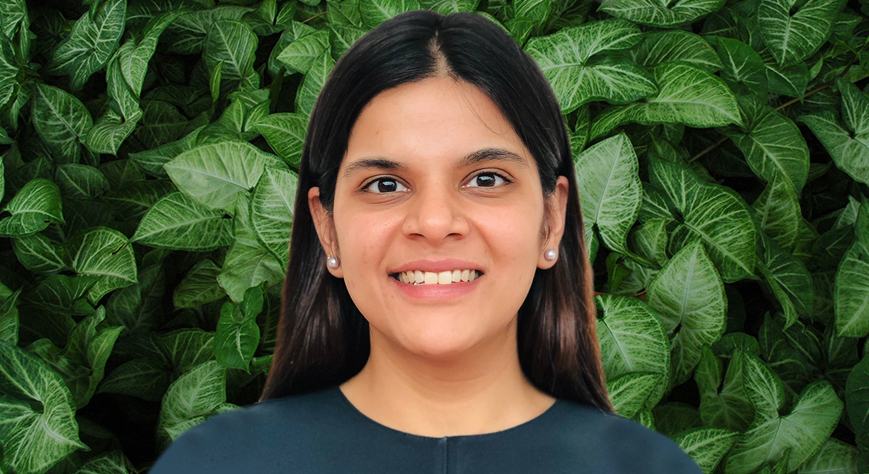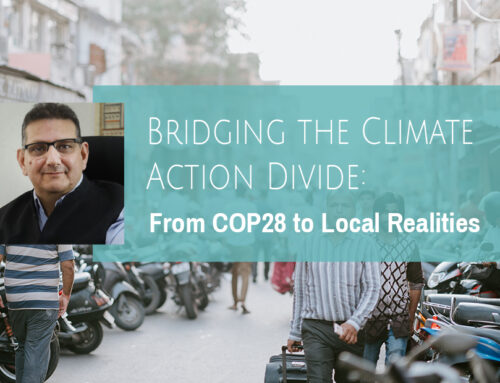Aafsha Kansal wants to see green building implementation simplified enough for the end-buyer to make an informed decision.
 Have you ever been to a restaurant that serves multiple cuisines and got confused about what to order? Something similar is happening in the building sector, according to Aafsha Kansal.
Have you ever been to a restaurant that serves multiple cuisines and got confused about what to order? Something similar is happening in the building sector, according to Aafsha Kansal.
“I think we’ve been able to do a lot; we have some great people who are doing a great amount of research. The definition of decarbonization in the Indian context has evolved. But that evolution has happened to such a level that now the end-user is confused about what that means. They do not know what to ask for or what certification they should go for,” Ms Kansal said.
“The need of the hour is to start simplifying things so that they can be implemented easily. Research is important but implementation is more important, now more than ever. We need to proceed on a practical basis.”
Ms Kansal said the upcoming Energy Conservation and Sustainable Building Code is a step in the right direction.
“The implementation document must resonate with ordinary people who want to build or buy a building. When it’s easier for laypeople to understand, only then can we have a wider willingness for implementation.”
Collaborating to create impact
Aafsha Kansal joined GBPN in January 2024 as a Project Manager for India, and said she was excited to see how the organization was approaching the issue.
“GBPN is on the right track for two primary reasons. Firstly, I’m in absolute awe of the practical approach that we are taking within GBPN. What is this going to move? What is it going to mobilize? What is the impact? These are the questions we ask ourselves for every project. We want to see impact and not just be another bird in the flock. Putting off the business mindset and putting on the mindset of mobilizing things and seeing change is the reflection that I see within GBPN. That is very exciting for me.”
“Second is the approach that GBPN takes to always try to solve the issue at the grassroot level. Every geography is different and the solutions need to be local. GBPN’s way is a collaborative approach with local experts, and I believe that this approach is vital for successful implementation.”
And it’s not just about local geographies. She said different stakeholders need to be approached differently.
“It is easier to talk about the technical aspects with stakeholders who already have a good understanding of sustainable buildings. However, even they have concerns about the complexity of the regulations and how to adhere to them. On the other hand, for small developers who operate on limited budgets and have a low understanding of sustainability practices, the approach is different. The key here is a collaborative approach keeping in mind the capacity of the stakeholder.”
Reclaiming our culture of sustainability
Most cultures traditionally followed sustainable practices, and India is no different.
“Sustainability was a way of life just one or two generations ago. But somewhere along the way, we strayed away from our traditional ways and got too consumerist. But now people recognize that fact, and are going back to vernacular ways of constructing buildings, especially residential ones.”
It helps that green buildings are no longer costly.
“If you had asked me five or six years ago, I would have said that green buildings are expensive. But now demand and supply have balanced out, and there is mass production of sustainable materials. There is also enough research that can prove through detailed calculations that green is no longer costly.”
It is a great time to be a sustainability consultant
Ms Kansal is a postgraduate in Sustainable Design and High Performance Buildings from the University of Sydney, Australia, and has a word of encouragement for professionals wanting to join the industry.
“Sustainability is no longer a niche market when it comes to careers. It is a growing industry, and there are a lot of opportunities. It’s a full-fledged professional life with no boundaries to flourish. I see it as a combination of creativity, research, and architecture, all put together to create something that has a future for itself. But, you need to be sure that you want to make sustainability your career, that is what you want to do for the rest of your professional life. You must be passionate about it.”
“Demand for sustainability in every industry is only going to grow. When you have three-year old kids come and tell you to switch off unnecessary lights as part of a school project on sustainability, you know that awareness is happening at the grassroots level.”
Share This Story, Choose Your Platform!
Stay in touch with how we’re transforming the buildings sector
GBPN runs innovative building policy reform programs in key regions around the world that aim to tackle the climate emergency by decarbonising the buildings sector. Stay up to date with our newsletter.
Stay in touch with how we’re transforming the buildings sector
GBPN runs innovative building policy reform programs in key regions around the world that aim to tackle the climate emergency by decarbonising the buildings sector. Stay up to date with our newsletter.







